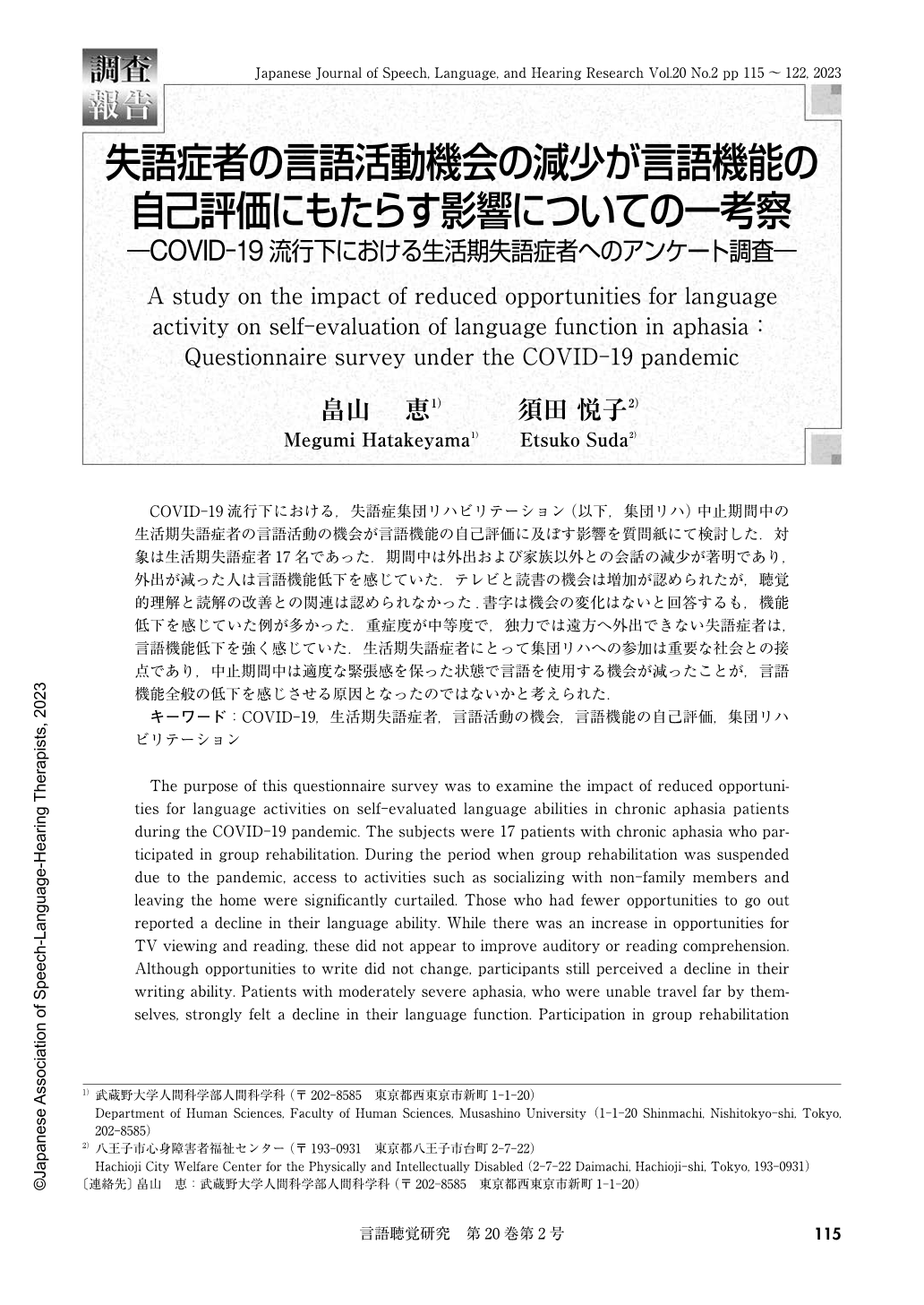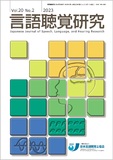Japanese
English
- 有料閲覧
- Abstract 文献概要
- 1ページ目 Look Inside
- 参考文献 Reference
COVID-19流行下における,失語症集団リハビリテーション(以下,集団リハ)中止期間中の生活期失語症者の言語活動の機会が言語機能の自己評価に及ぼす影響を質問紙にて検討した.対象は生活期失語症者17名であった.期間中は外出および家族以外との会話の減少が著明であり,外出が減った人は言語機能低下を感じていた.テレビと読書の機会は増加が認められたが,聴覚的理解と読解の改善との関連は認められなかった.書字は機会の変化はないと回答するも,機能低下を感じていた例が多かった.重症度が中等度で,独力では遠方へ外出できない失語症者は,言語機能低下を強く感じていた.生活期失語症者にとって集団リハへの参加は重要な社会との接点であり,中止期間中は適度な緊張感を保った状態で言語を使用する機会が減ったことが,言語機能全般の低下を感じさせる原因となったのではないかと考えられた.
The purpose of this questionnaire survey was to examine the impact of reduced opportunities for language activities on self-evaluated language abilities in chronic aphasia patients during the COVID-19 pandemic. The subjects were 17 patients with chronic aphasia who participated in group rehabilitation. During the period when group rehabilitation was suspended due to the pandemic, access to activities such as socializing with non-family members and leaving the home were significantly curtailed. Those who had fewer opportunities to go out reported a decline in their language ability. While there was an increase in opportunities for TV viewing and reading, these did not appear to improve auditory or reading comprehension. Although opportunities to write did not change, participants still perceived a decline in their writing ability. Patients with moderately severe aphasia, who were unable travel far by themselves, strongly felt a decline in their language function. Participation in group rehabilitation serves as an important social contact point for people with chronic aphasia. It was thought that fewer opportunities to use language while maintaining a reasonable level of tension, may have been the cause of the perceived decline in overall language function.

Copyright © 2023, Japanese Association of Speech-Language-Hearing Therapists. All rights reserved.


